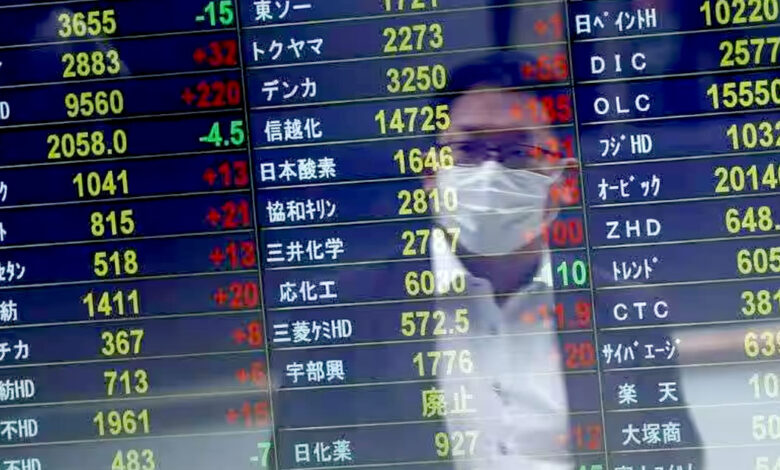Asian Stock Market Remains Flat, Chinese Shares Decline due to Weak GDP

Asian stocks remained subdued as Chinese shares took a tumble on the back of disappointing GDP figures. The second quarter saw a significant slowdown in China’s economic growth, resulting in cautious trading across the region.
Trading activity was limited due to Japan observing a market holiday and Hong Kong experiencing a trading halt caused by an impending typhoon—the first major one this year.
Asian technology stocks, which had been buoyed by reduced expectations of further U.S. interest rate hikes, began losing momentum. Concerns over the sluggish growth of the region’s largest economy started to dominate investors’ minds.
Chinese stocks suffered the most, with both the Shanghai Shenzhen CSI 300 and Shanghai Composite indexes dropping over 1%. The second quarter GDP figures revealed a mere 0.8% growth compared to the previous quarter, falling short of expectations. Although the growth exceeded estimates of 0.5%, it paled in comparison to the robust 2.2% increase witnessed in Q1.
Year-on-year GDP growth also disappointed, coming in at 6.5% against the projected 7.3%. However, this figure should be taken with caution, as it was primarily influenced by the weak comparison base of 2022, when China maintained strict zero-COVID policies.
The latest data indicates that the Asian economic recovery is losing momentum, suggesting that the government may need to implement additional stimulus measures in the upcoming months.
Expectations for interest rate cuts in China were also dashed, as the People’s Bank of China opted to keep its medium-term lending rates unchanged. This decision suggests that the PBOC will likely maintain the stability of its benchmark Loan Prime Rate later this week.
China’s weakness casts a shadow over other Asian economies heavily reliant on it as a trading hub. South Korea’s KOSPI fell by 0.3%, while Australia’s ASX 200 experienced a slight 0.1% dip.
On a positive note, the Taiwan Weighted index saw a modest increase, while Philippine shares suffered the most significant losses in Southeast Asia, declining by 0.6%.
Meanwhile, in India, the Nifty 50 index futures indicated a steady start for local stocks. Both the Nifty and the BSE Sensex 30 achieved record highs on Friday, driven by optimism surrounding the Indian economy, substantial exposure to technology stocks, and encouraging earnings reports.
The upcoming week will shed more light on major financial, industrial, and consumer sector earnings, providing valuable insights into local companies amid a relatively robust economic backdrop.
Nevertheless, analysts caution that disappointing earnings could trigger substantial losses in Indian stocks, considering that valuations are already stretched.





